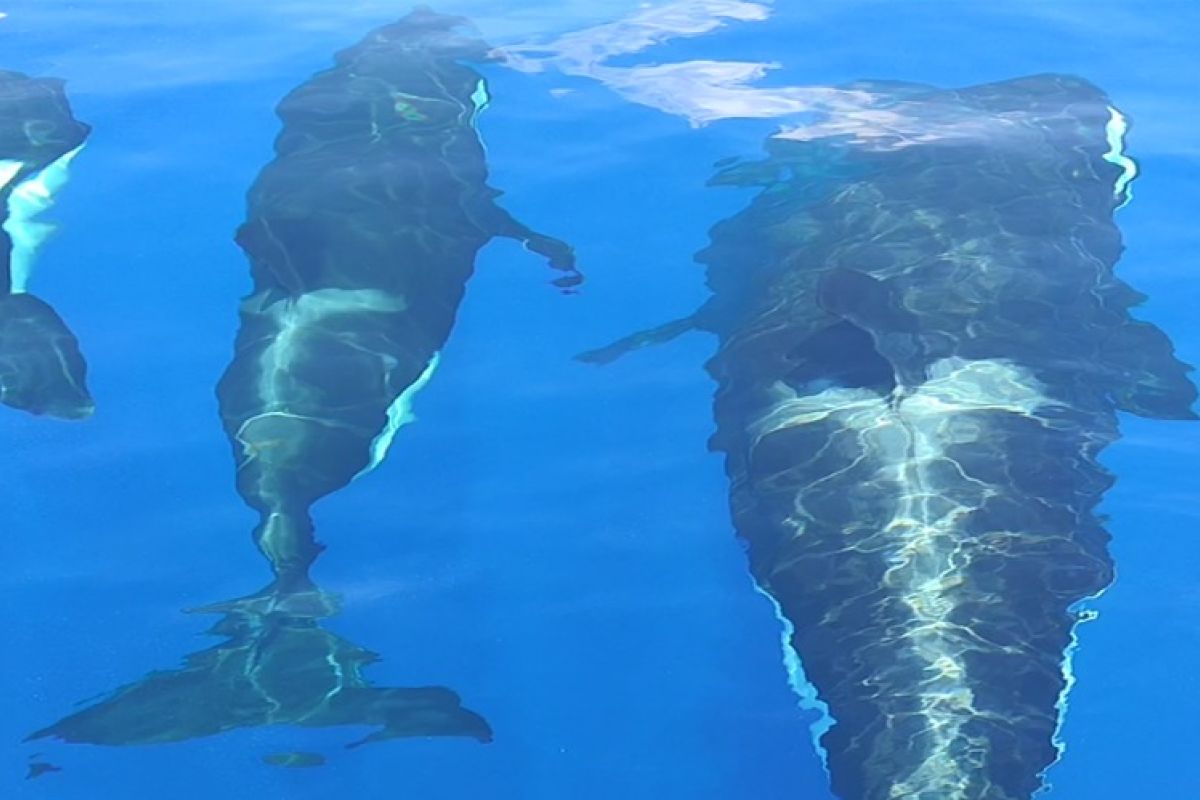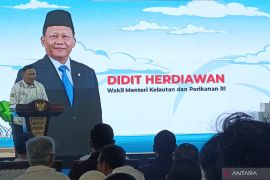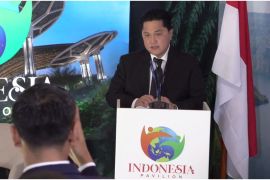"There are two points identified as threats to marine mammals. Both are ocean noise and marine debris," said expert staff for ecology and marine resources at the Ministry of Marine Affairs and Fisheries, Pamuji Lestari, at the International Seminar On Marine Mammal Threats: Marine Debris and Ocean Noise, which was held in the online and offline mode, here on Wednesday.
The two threats have been identified through discussions between a team from the ministry, national experts, and researchers, she added.
Indonesia has become an important habitat hotspot for marine mammals, she noted. There are at least 35 species of marine mammals that are known to be in or pass through Indonesian waters, she added.
Therefore, the emergence of marine mammals in coastal areas is a natural phenomenon, she said. Unfortunately, in the last decade, these marine biota have often been found stranded on the coast, she remarked.
"Since 2015 and until now, about 52.2 percent of the stranded whales could still be saved and returned to the sea," she revealed.
Related news: Bali's Kuta Beach cleared of 30 tons of marine litter
Unlike endemic animals, animals that migrate over long distances, such as marine mammals, need special attention, she pointed out. Moreover, the main threats they face are also related to activities carried out by humans, she added.
The Indonesian government has designated marine mammals as a protected species since 1999. This means that direct exploitation of the marine biota is strictly prohibited, Lestari said.
In addition, the Ministry of Marine Affairs and Fisheries has issued the Decree of the Minister of Marine Affairs and Fisheries Number 79 of 2018 concerning the National Action Plan for Marine Mammal Conservation for the 2018-2022 implementation period, she informed.
"The Indonesian government has also strengthened its commitment through the establishment of various regulations, including a commitment to reduce 70 percent of marine debris by 2025," she added.
In the meantime, acting director general of marine spatial management at the Ministry of Marine Affairs and Fisheries, Hendra Yusran Siry, concurred that ocean noise and marine debris are the main factors behind marine mammal strandings.
"Since 2015, there have been around 100 cases of stranded mammals, with the number of cases recorded at around 16 to 20 per year," he disclosed.
To reduce marine mammal strandings, the Ministry of Marine Affairs and Fisheries has, since 2012, issued guidelines for their handling, carried out socialization and trainings, and formed a network for handling stranded marine mammals with partners, he said.
The ministry has also issued the Decree of the Minister of Marine Affairs and Fisheries Number 79 of 2018 concerning the National Action Plan for the Conservation of Marine Mammals for the 2018-2022 Period and established a working group for the coordination and implementation of marine mammal conservation plans, including the handling of stranded marine mammals, based on the Decree of the Minister of Marine Affairs and Fisheries Number 14 of 2020, he added.
Related news: Fisheries Ministry to reduce single-use plastics in fishing ports
Translator: Ade irma Junida, Katriana
Editor: Rahmad Nasution
Copyright © ANTARA 2021












